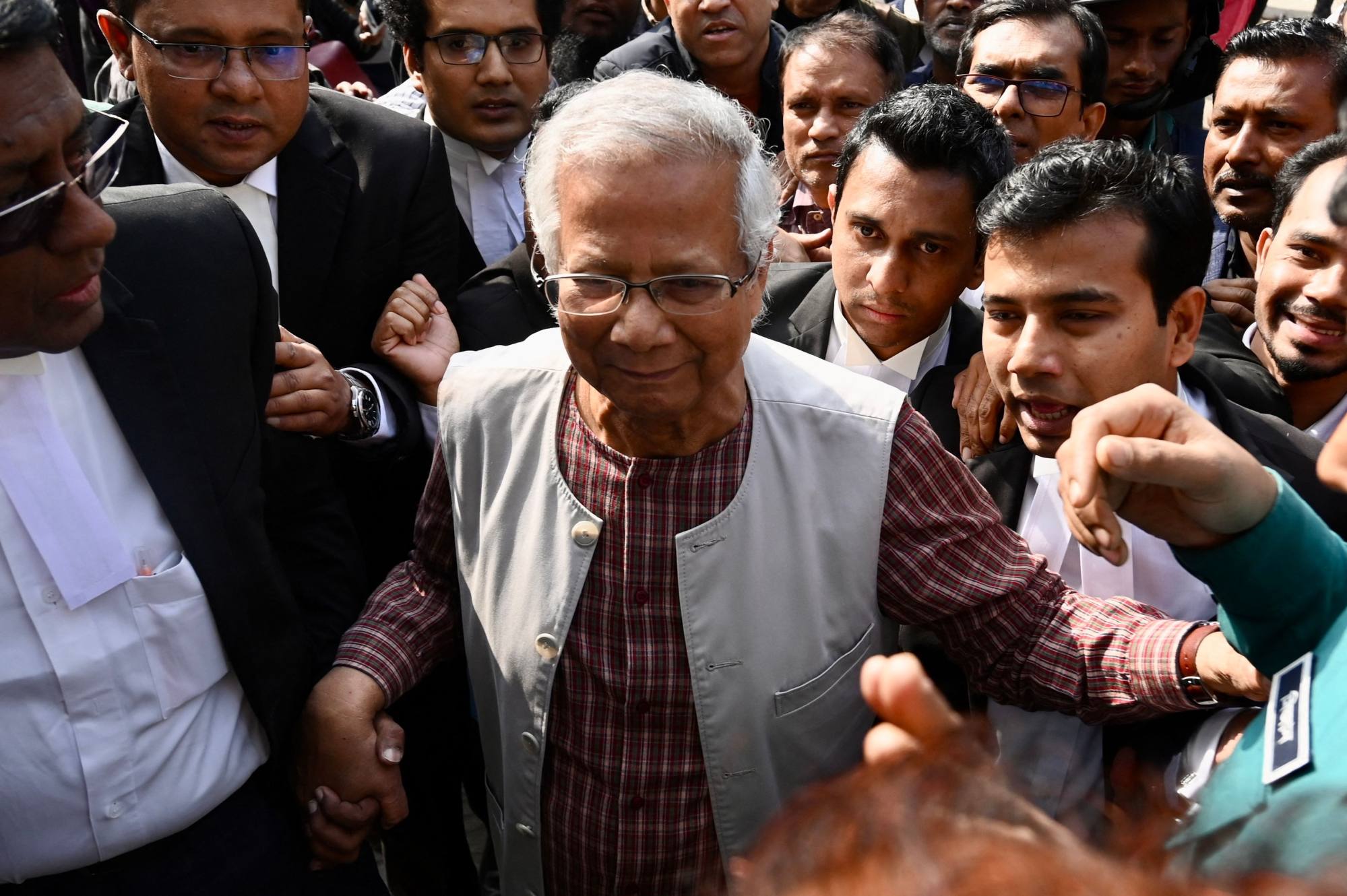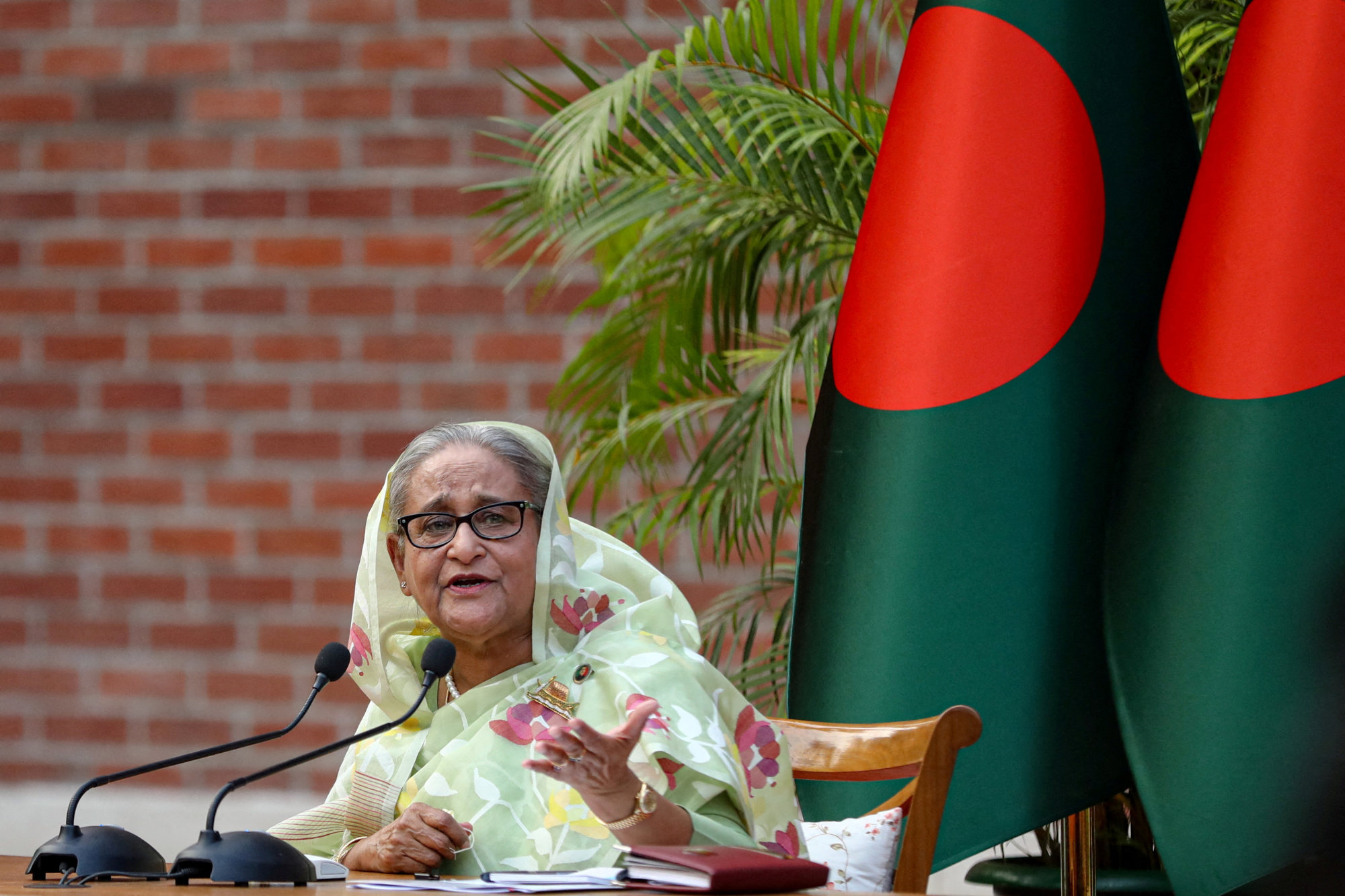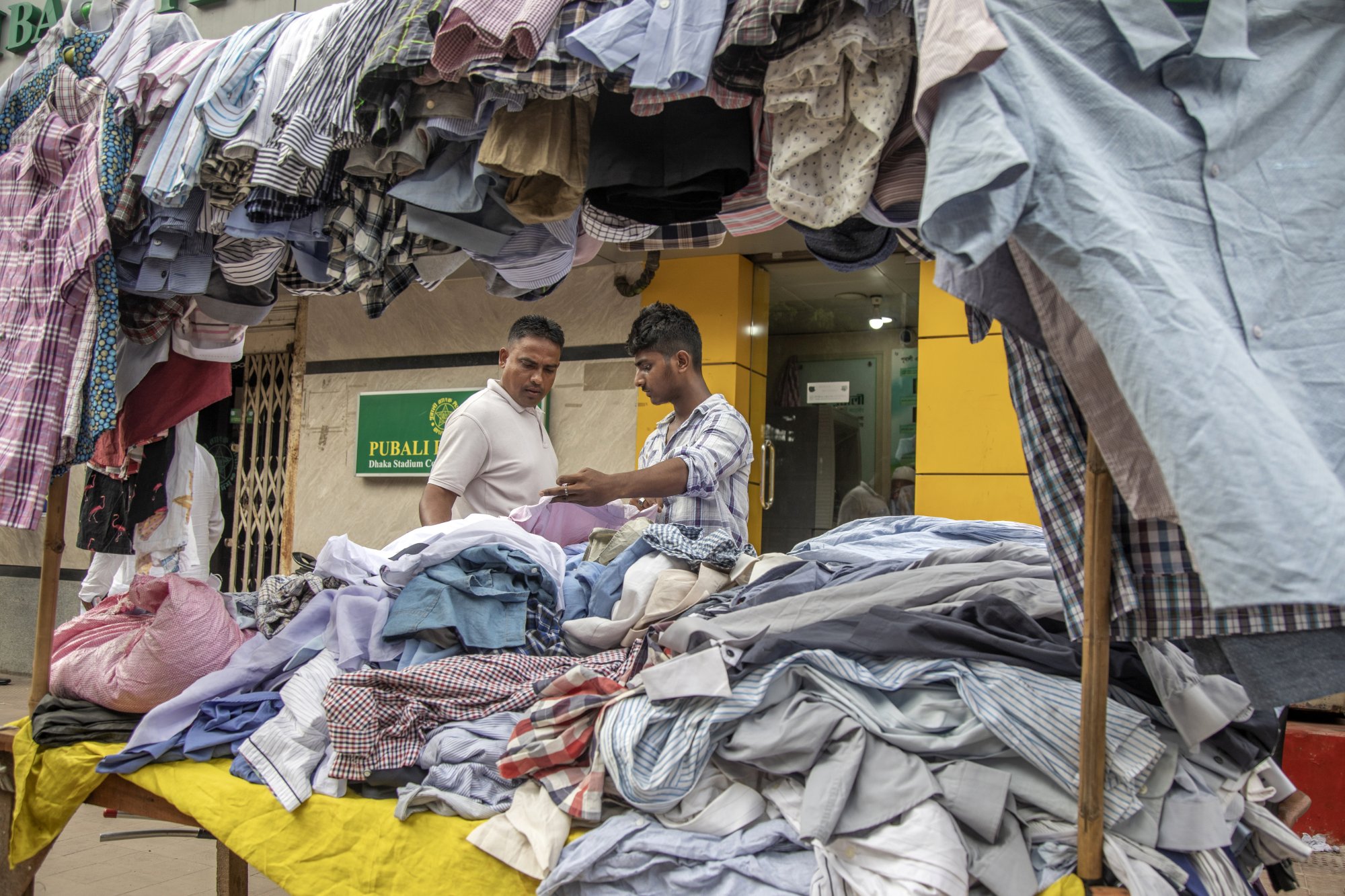
Around 200 cases have been filed against Yunus since Sheikh Hasina first became Bangladesh’s prime minister in 2009, mostly for allegedly violating labour laws and embezzling funds from some of the more than 50 social business firms that he had set up in the country.
Supporters of Yunus allege that the cases mark a campaign by Bangladeshi authorities to harass and vilify the economist, one of the country’s most high-profile figures and a bitter and long-time rival of Hasina.

In January, Yunus was sentenced to six months in prison for violating labour laws at Grameen Telecom which together with Norway’s state-owned Telenor is a shareholder in Bangladesh’s largest mobile operator Grameenphone. But he remains out on bail pending further proceedings.
Besides the embezzling case, Yunus has been accused of 200 other charges, each of which he has denied.
In an earlier statement, Yunus defiantly said: “I call for the Bangladeshi people to speak in one voice against injustice and in favour of democracy and human rights for each and every one of our citizens.”
After a June 12 indictment hearing where he pleaded not guilty, Yunus waved to journalists and told them he was confined in “an iron cage” during the court proceeding and that he was facing harassment by the government.
“This is a humiliation for me – an innocent person must stand inside an iron cage during the whole hearing time! This is an abominable practice,” he said, demanding that the provision be reviewed.
Several global leaders and social activists have criticised Hasina’s treatment of Yunus, accusing her government of harassing him as she sees him as a “political threat”.
In 2007, the celebrated economist had expressed his desire to form Citizens’ Power, a political party meant to battle corruption and polarisation, a plan – later dropped – that was seen as having placed him in the cross hairs of Hasina, who, when she took power, launched a string of investigations against him.
Yunus’ Nobel Prize win for his work with the Grameen Bank that promoted “economic and social development from below” earned him support from the international community.
It was not long before he openly began criticising Hasina’s regime, resulting in her calling the economist a “bloodsucker of the poor” and accusing him of charging exceptionally high interest rates through Grameen Bank.

Yunus denied Hasina’s allegations, drawing a distinction between “right microcredit” and “wrong microcredit”, stating that microcredit must be used for social development and not to make profits.
In August last year, over 170 global leaders, including more than 100 Nobel laureates, former US president Barack Obama and Turkish author Orhan Pamuk, in an open letter claimed that Yunus was being earmarked because of Hasina’s qualms with him. They further urged the government to put an end to the legal proceedings against Yunus.
“We are alarmed that he has recently been targeted by what we believe to be continuous judicial harassment,” the letter, which was addressed to Hasina and published in the international edition of The New York Times as a full-page ad, read.
“We are confident that any thorough review of the anti-corruption and labor law cases against him will result in his acquittal.”
The Hasina government has since denied these allegations.
After the show of support from world leaders for Yunus, Hasina accused the professor of “begging” for an international statement and said she would welcome international experts to assess the legal proceedings against Yunus.
A political threat?
Bangladeshi women’s rights activist Farida Akhter told This Week in Asia that the global recognition the economist had received threatened Hasina’s regime should he turn into a political figure and champion the cause against what some perceived as a “corrupt and oppressive” rule.
“Perhaps the regime feels challenged by his ideas since they raise popular concerns about governance, social equality, and management of the economy that must be oriented to serve the poor and the downtrodden,” she said.

Mohammad Ashrafuzzaman, a consultant at the Capital Punishment Justice Project, which has been documenting rights violations in Bangladesh for more than 15 years, said Hasina’s government had displayed an established pattern of “weaponising the judiciary as a tool”, as was evident in Yunus’ case.
“The characteristics of Bangladesh’s justice system are known for its visible double standards. In one scenario there are pro-regime state and non-state actors such as the immediate past police chiefs, army chiefs, bureaucrats, public servants of different layers, and the ruling party leaders have acquired disproportionately higher amounts of wealth through corruption and abuse of power with impunity,” he told This Week in Asia.
“In another scenario the dissidents, opposition political leaders, high-profile personalities like Professor Yunus, independent journalists, online activists, and human rights defenders face instant arbitrary incarceration, custodial abuses and torture followed by indictment and convictions in politically motivated cases without their right to fair trial guaranteed.”
Jon Danilowicz, a retired US diplomat who has served in Bangladesh, said Hasina had “pursued a political and personal vendetta” against Yunus since returning to power in 2009.
“The legal cases directed towards Yunus are Hasina’s chosen method of sending a clear message to anyone who would dare to stand up to her. She also hopes to demonstrate to her supporters that Western threats to hold her regime accountable won’t be followed up by action,” Danilowicz told This Week in Asia.
As Hasina faces “her greatest political challenge since returning to office in 2009”, she is no doubt still haunted by memories of the 2007-08 period when the military-backed caretaker government tried to sideline her, according to Danilowicz.
“Hasina and her inner circle continue to see Professor Yunus as a potential rival given his international and domestic standing,” he said.
“This explains why Hasina continues to pursue her vendetta against Yunus.”
Persecution of Bangladeshi Nobel laureate is political ‘vendetta’ by Hasina government: analysts #Persecution #Bangladeshi #Nobel #laureate #political #vendetta #Hasina #government #analysts

Source Link: https://amp.scmp.com/week-asia/politics/article/3271388/persecution-bangladeshi-nobel-laureate-political-vendetta-hasina-government-analysts
Around 200 cases have been filed against Yunus since Sheikh Hasina first became Bangladesh’s prime minister in 2009, mostly for allegedly violating labour laws and embezzling funds from some of the more than 50 social business firms that he had set up in the country. Supporters of Yunus allege that the cases mark a campaign …
#WP12 – BLOGGER – WP12, Analysts, Bangladeshi, government, Hasina, laureate, Nobel, Persecution, political, vendetta